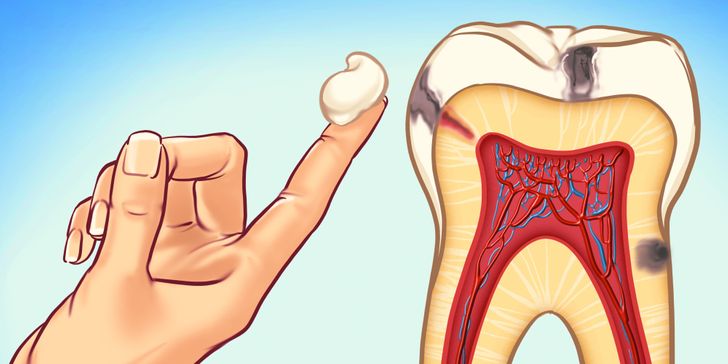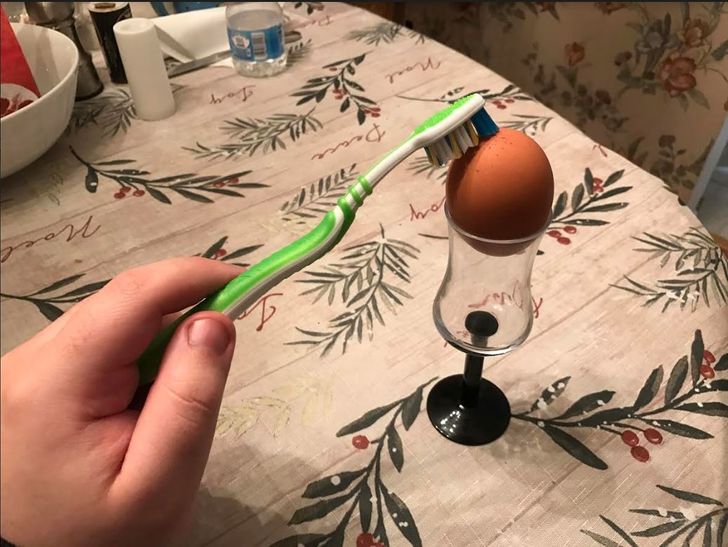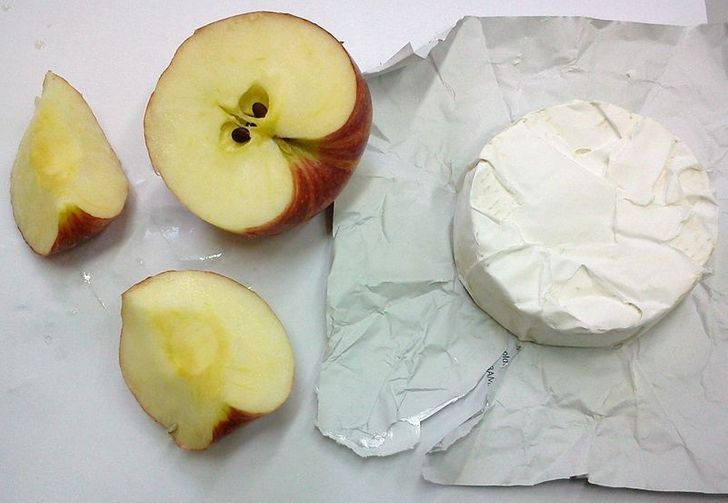In today’s competitive world of online health information, maintaining excellent dental health is more important than ever. With rising dental care costs and an increasing emphasis on overall wellness, preventing tooth decay is a top priority. In this comprehensive guide, leading dentists reveal eight simple, effective ways to protect your teeth and gums from decay. Whether you’re looking to improve your oral hygiene, prevent cavities, or simply ensure a brighter smile, these expert-backed strategies will transform your daily dental routine.
How To Prevent Tooth Decay
Try Oil Drawing for Optimal Oral Health

Oil drawing is an ancient Ayurvedic practice that involves swishing oil in your mouth to help eliminate bacteria and improve oral hygiene. Many dentists now recommend oil drawing as a natural way to prevent tooth decay and reduce plaque buildup. Using oils like coconut, sesame, or sunflower can reduce harmful bacteria and promote gum health.
- How It Works: The practice involves swishing one tablespoon of oil for about 10-20 minutes before spitting it out and then brushing your teeth. This simple technique can reduce plaque and gingivitis over time.
- Expert Reference: For more detailed information on oil drawing and its benefits, visit the American Dental Association for expert insights.
Incorporating oil drawing into your morning routine may be the key to a fresher, cleaner mouth. By reducing harmful bacteria, you create an environment less conducive to the development of cavities and tooth decay.
Avoid Excessive Sugar Intake to Prevent Tooth Decay
Sugar is a leading cause of tooth decay. Frequent consumption of sugary foods and beverages creates an environment where bacteria thrive, producing acids that erode enamel. To maintain strong, healthy teeth, it’s crucial to limit your sugar intake.
- Dietary Adjustments: Cut back on sodas, candies, and processed snacks. Opt for natural sweeteners and fresh fruits when cravings hit.
- Expert Reference: Learn more about the relationship between sugar and tooth decay on WebMD’s dental health section.
Limiting sugar not only protects your teeth but also contributes to overall health by reducing the risk of diabetes and heart disease. Making mindful food choices can help maintain a balanced diet while promoting superior dental care.
Brush Your Teeth Twice Daily for Superior Oral Hygiene

Brushing your teeth twice a day is a cornerstone of good oral hygiene. This simple habit removes food particles and plaque that can lead to decay. The right technique and quality toothbrush are essential components of an effective dental care routine.
- Proper Brushing Technique: Use a fluoride toothpaste and a soft-bristled toothbrush. Brush for at least two minutes, ensuring you cover all areas of your mouth.
- Expert Reference: The Mayo Clinic offers comprehensive guidelines on the best brushing practices and dental care products.
Incorporating a structured brushing routine not only prevents cavities but also sets the stage for fresh breath and a confident smile. Using a fluoride toothpaste further strengthens enamel and aids in preventing decay.
Don’t Forget to Brush Your Tongue for Complete Oral Care
While many focus on brushing their teeth, the tongue is often overlooked. Brushing your tongue can eliminate bacteria that contribute to bad breath and dental decay. A thorough cleaning of the tongue can lead to a healthier oral environment.
- Why It Matters: The tongue harbors bacteria that can form plaque and cause decay if left uncleaned.
- Expert Reference: For more tips on tongue cleaning and oral hygiene, check out advice from Healthline’s dental care articles.
Regularly brushing your tongue can help prevent the spread of bacteria throughout your mouth, ensuring that your oral hygiene routine is as comprehensive as possible.
Focus on the Small Details for Comprehensive Dental Health

Attention to detail in your dental care routine can make a significant difference in preventing tooth decay. This means taking care of areas that are often neglected, such as the gum line, the back of your teeth, and even your dental appliances if you use them.
- Additional Oral Care Tips: Use interdental brushes, floss daily, and consider a water flosser to clean hard-to-reach areas.
- Expert Reference: The American Dental Association provides tips on maintaining detailed oral care for preventing decay and gum disease.
By paying close attention to the little details, you can catch early signs of decay and address them before they become serious dental issues. This proactive approach is key to a lifetime of healthy smiles.
Incorporate Green or Black Tea for Cavity Prevention
Drinking green or black tea can offer unexpected benefits for dental health. Both teas are rich in antioxidants and have natural antibacterial properties, which help reduce the growth of cavity-causing bacteria.
- Benefits of Tea: These teas help reduce plaque buildup and may even lower the risk of gum disease.
- Expert Reference: For more insights into how tea consumption benefits oral health, visit Healthline’s tea and dental care section.
Enjoying a cup of green or black tea as part of your daily routine can not only improve your overall health but also serve as a natural deterrent against tooth decay.
Avoid Overbrushing: The Key to Maintaining Gum Health

While brushing is crucial, overbrushing can lead to gum recession and enamel wear. It’s important to use gentle, circular motions and avoid applying too much pressure, which can cause more harm than good.
- Brushing Dos and Don’ts: Use a soft-bristled toothbrush and avoid aggressive scrubbing. Let your toothbrush do the work.
- Expert Reference: Detailed recommendations on brushing techniques can be found at Mayo Clinic.
Striking the right balance between thorough cleaning and gentle care ensures that your gums remain healthy and your enamel stays strong. This balanced approach is essential for long-term dental health.
Eat Dental Health-Boosting Foods for Natural Cavity Defense

What you eat plays a crucial role in preventing tooth decay. A diet rich in vitamins, minerals, and fiber can help keep your teeth and gums strong. Incorporate foods that naturally fight decay and promote oral health.
- Recommended Foods: Crunchy fruits and vegetables like apples and carrots help clean your teeth as you eat, while dairy products provide calcium for stronger enamel.
- Expert Reference: For dietary guidelines that support dental health, refer to Harvard Health Publishing.
In addition to reducing sugar intake, focus on a balanced diet that supports your oral and overall health. Foods rich in antioxidants and vitamins can repair early signs of decay and protect against further damage.
Integrating These Strategies Into a Daily Dental Care Routine
Adopting these eight dentist-recommended strategies can transform your approach to dental care. Here’s how you can integrate them into your daily routine:
- Morning Routine: Start your day with oil drawing to clear out bacteria, then brush your teeth and tongue thoroughly. Complement this with a healthy breakfast rich in dairy and fiber.
- Midday Care: If possible, rinse your mouth with water after meals and avoid excessive sugar consumption. Consider a cup of green or black tea as a refreshing alternative to sugary beverages.
- Evening Routine: Maintain a diligent brushing routine before bed, paying special attention to the little details like the gum line and interdental spaces. Use gentle techniques to avoid overbrushing, and always finish with a final rinse or flossing session.
By embedding these practices into your lifestyle, you create a sustainable dental care regimen that prevents tooth decay and promotes long-term oral health.
The Long-Term Benefits of Preventing Tooth Decay
Preventing tooth decay is more than just maintaining a bright smile—it’s about ensuring overall health and reducing future dental expenses. Good dental habits reduce the risk of gum disease, tooth loss, and even systemic conditions linked to poor oral hygiene, such as heart disease and diabetes.
- Cost Savings: Preventative dental care, including regular check-ups and proper hygiene, can save you money on expensive treatments like fillings, crowns, or dental implants in the future.
- Expert Reference: For further reading on the financial and health benefits of preventative care, explore resources at Colgate.
When you invest in prevention today, you’re investing in a healthier, more confident tomorrow. The proactive measures discussed in this guide can make a significant difference in your quality of life and overall well-being.
Final Thoughts: Your Roadmap to a Cavity-Free Smile
A cavity-free smile is achievable with dedication, discipline, and a well-rounded dental care routine. By following these eight simple yet effective tips—oil drawing, moderating sugar intake, brushing properly, cleaning your tongue, focusing on the small details, enjoying tea, avoiding overbrushing, and eating dental health-boosting foods—you are laying the foundation for a lifetime of superior oral health.
Remember, your smile is one of your most valuable assets. Regular visits to your dentist, coupled with these daily practices, can prevent tooth decay and ensure that your teeth remain strong, healthy, and beautiful. For additional dental care advice and up-to-date research, trusted sources like the American Dental Association and Healthline offer a wealth of information.
By incorporating these strategies into your daily routine, you not only improve your oral hygiene but also enhance your overall quality of life. With commitment and consistency, the path to a cavity-free, radiant smile is well within reach.
Embrace these dentist-approved tips today and experience the transformation in your dental health. Whether you’re seeking to prevent tooth decay, maintain excellent oral hygiene, or simply invest in a healthier future, these proven methods are your roadmap to success.









